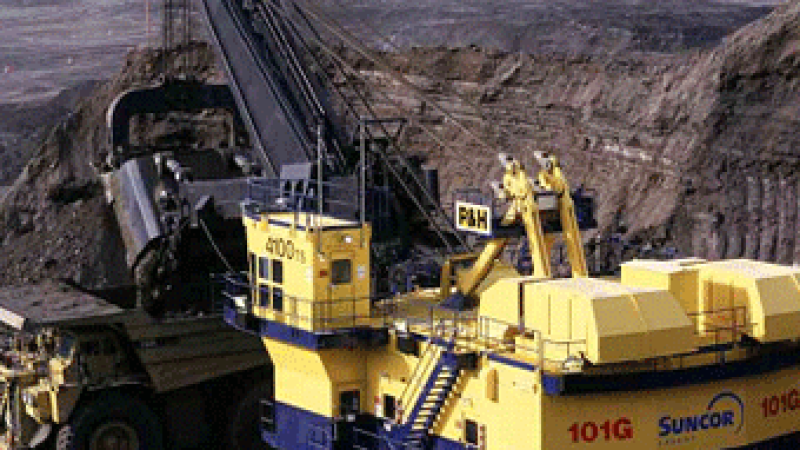Unlikely appeal to RBC first lady, Mrs. Janet Nixon, highlights bank’s involvement in tar sands
More information on RBC's tar sands investments and RAN's campaign at climatefriendlybanking.org or ran.org/tarsands

More information on RBC's tar sands investments and RAN's campaign at climatefriendlybanking.org or ran.org/tarsands
A weeklong buzz around mysterious "please help us Mrs. Nixon" posters in downtown Toronto culminated today at the Royal Bank of Canada's (RBC) headquarters, where Rainforest Action Network (RAN) dropped a 15' x 30' banner appealing to Janet Nixon, the wife of CEO Gordon Nixon. Protestors scaled the 50' flagpole at the main entrance to the RBC headquarters on Bay and Wellington, replacing the flags with the 15' banner, which hung for 2.5 hours as employees, including Gordon Nixon, arrived for work at the bank. The banner and the posters asked for Mrs. Nixon's help to end the company's involvement with destructive tar sands financing. RBC is the largest financier of the tar sands expansion in Alberta, Canada's fastest growing source of water pollution and global warming emissions. Two Indigenous Canadian women climbers were ticketed by the Toronto Police for hanging the banner.
Today's banner and posters are linked to the launch of an Internet video featuring Michael Brune, executive director of RAN. In the one-minute video, available at pleasehelpusmrsnixon.com, Brune appeals to Mrs. Nixon, asking for her help in pushing RBC to end investments in tar sands and to take a leadership role in funding a clean energy future. The video has been sent to more than 70,000 people who have been asked to send the message to RBC's corporate social responsibility department.
Rainforest Action Network is appealing to Mrs. Nixon, a committed environmentalist and the first lady of RBC, to lend her strong and influential voice to those fighting to protect Canada's clean water and ensure Canada meets its climate commitments, which are threatened by the tar sands," said Michael Brune, executive director of RAN. "RBC has a critical role to play in investing in Canada's clean energy future. The health of Canada's Indigenous peoples, vital water resources and air quality need Mr. and Mrs. Nixon's help."
Today's protest highlights the stark contrast between RBC's status as the top financier of the Alberta tar sands, and the company's PR promises to promote clean water. Last year, RBC launched their Blue Water Project, an initiative "committed to donating $50 million toward global fresh water initiatives over the next ten years." In contrast to the $3 million dollars actually released in water quality improvement donations under the program in the first year, RBC made $2.2 billion in loans in 2007 alone to oil and gas companies operating in the Alberta tar sands, one of Canada's largest sources of water pollution.
"As a member of the Athabasca Chipewyan First Nation, the Tar Sands are destroying our traditional ways of life and the future of our community," said Eriel Deranger, an Indigenous Canadian and a RAN campaigner who is one of the climbers in today's protest. "RBC touts its commitment to clean water, but is a leading financier of Canada's most polluting industries. It's time for RBC to be a true leader and stop bankrolling the tar sands."
Extraction of oil from the Alberta tar sands is a major threat to climate change, resulting in three times more global warming-causing greenhouse gas emissions than conventional oil. Tar sands development is turning once-pristine stretches of forest into desolate, post-apocalyptic landscapes and producing toxic pollution that is harmful to the health and quality of life of the region's First Nations.

